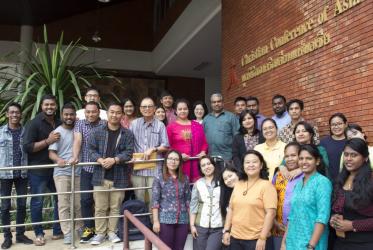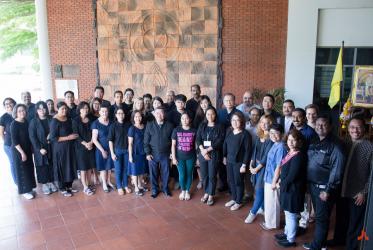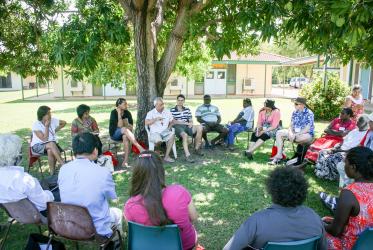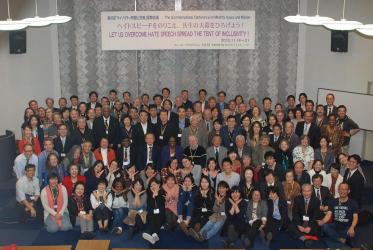Displaying 1 - 20 of 23
Indigenous spirituality: can it transform injustice into justice?
01 September 2016
"I hit the ground running": Katalina Tahaafe-Williams
16 February 2016
Japanese churches discuss minority issues
01 December 2015
Land rights focus of panel discussion
17 November 2015
A humble man firmly rooted in faith
20 August 2015
WCC Executive Committee speaks out on migrant crises
12 June 2015
New UN document opens door for churches to do more for indigenous rights
23 September 2014










